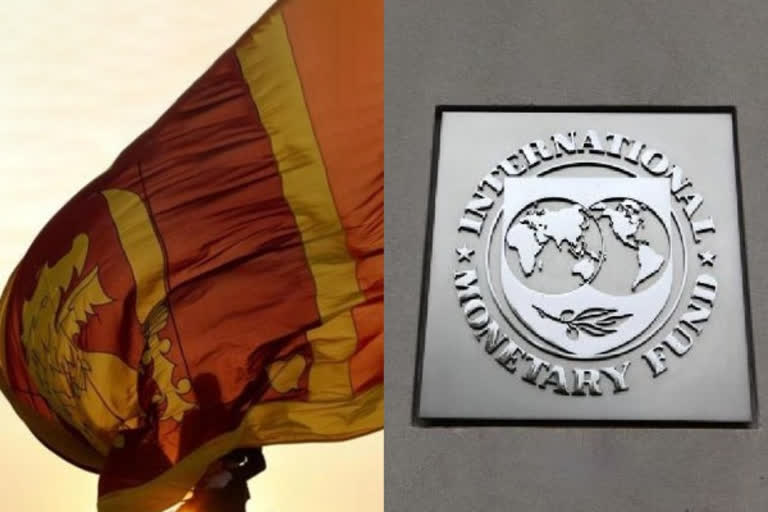Colombo: The IMF chief Kristalina Georgieva on Sunday said she is pleased the Washington-based lender and the Sri Lankan government have reached a staff-level agreement to provide about USD 2.9 billion to help the bankrupt country, terming the deal as an important step forward. The International Monetary Fund (IMF) on Thursday announced that it will provide Sri Lanka a loan of about USD 2.9 billion over a four-year period to help the island nation overcome the unprecedented economic turmoil.
The bailout package is expected to boost the country's credit ratings and the confidence of international creditors and investors. Very pleased that IMF staff and Sri Lankan government officials have reached a staff-level agreement to support the country's economic policies with a 48-month Extended Fund Facility of about USD 2.9 billion, Georgieva said in a tweet.
This is an important step forward for Sri Lanka, she added. The new Extended Fund Facility (EFF) arrangement will support Sri Lanka's programme to restore macroeconomic stability and debt sustainability, while safeguarding financial stability, reducing corruption vulnerabilities and unlocking the country's growth potential, the IMF has said.
The agreement is subject to the approval by IMF management and the Executive Board in the period ahead, contingent on the implementation by the authorities of prior actions, and on receiving financing assurances from Sri Lanka's official creditors and making a good faith effort to reach a collaborative agreement with private creditors, it said.
"Debt relief from Sri Lanka's creditors and additional financing from multilateral partners will be required to help ensure debt sustainability and close financing gaps," the statement said, amid concerns that China would not go along with Western creditors on debt restructuring on an equal footing. All Sri Lankan creditors, including China, have to agree to restructure their existing loans to the island nation before the IMF starts disbursing the USD 2.9 billion loan.
The IMF has also called for action to raise fiscal revenue by implementing tax reforms, introducing cost recovery-based pricing for fuel and electricity, raising social spending to help the poor and the vulnerable in the ongoing economic crisis, restoring flexible exchange rate, a capitalised banking system and a stronger anti-corruption legal framework.
Meanwhile, Sri Lanka's Central Bank Governor Nandalal Weerasinghe warned on Saturday that if the IMF reforms, which are implemented, are reversed, the country could go back to square one in three years, news portal newsfirst.lk reported. "We go to the IMF asking for a loan for the coming two years, promising that we will rectify our mistakes.
But we can't go back to our old ways of having expenses greater than the income, government lending out concessions, and government corporations making losses as soon as this period is over, we will have to go to the IMF again, Weerasinghe was quoted as saying in the report. This has happened 16 times. But fortunately, we never had to approach the IMF when we were facing a debt crisis. We always went to the IMF before the crisis hit but after getting assistance, we went back to making the same old mistakes," he added.
The April debt moratorium led to Sri Lanka defaulting on its external obligations, and a critically low level of foreign reserves has hampered the import of essential goods, including fuel, further impeding economic activity. The country's economy is expected to contract by 8.7 per cent in 2022 and inflation recently exceeded 60 per cent. The impact has been disproportionately borne by the poor and vulnerable, the IMF noted.
Sri Lanka, a country of 22 million, plunged into a political crisis in July, after former President Gotabaya Rajapaksa fled the country following a popular public uprising against his government for mismanaging the economy. Rajapaksa was replaced by his ally Ranil Wickremesinghe. The country is also expected to restructure its debt worth USD 29 billion, with Japan expected to coordinate with other creditor nations, including China on this issue.
In mid-April, Sri Lanka declared its international debt default due to the forex crisis. The country owes USD 51 billion in foreign debt, of which USD 28 billion must be paid by 2027. There have been street protests in Sri Lanka against the government since early April due to its mishandling of the economic crisis.
A crippling shortage of foreign reserves has led to long queues for fuel, cooking gas, and other essentials while power cuts and soaring food prices have heaped misery on the people. (PTI)



